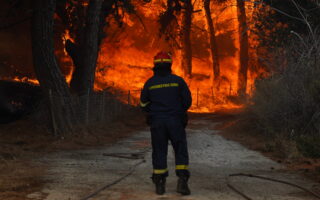‘Exemplary’ laws

There are various crimes, big and small, which do not garner the necessary contempt among the public to eliminate them. The “traditional vendetta” was one of them. While murder was generally reprehensible, vendetta or so-called “honor crimes” were considered almost heroic.
Violence against women was never seen as a heroic act, but there was some kind of “understanding.” In 1966, popular singer Doukissa sang, “I want my caresses and my slap from the man I love,” while people still listen to Vassilis Tsitsanis’ song in which a man threatens to kill his partner if he finds her with another man. In any case, as we hear in the 1955 film “Laterna, ftoheia kai filotimo” (Laterna, Poverty and Honor), women must always be subordinate to men, and not too many explanations should be given to them. Or, as another movie was titled, “The Woman Should Be Afraid of the Man.”
These attitudes cannot be eliminated and these behaviors are not discredited by making femicide a distinct crime in the criminal code, when homicide is already punished with life imprisonment. Nor did we stop wildfires by toughening the punishment. This year, and despite Law 4855/2021, we have had the same or an even greater number of forest fires, even though arson without intent is prosecuted as a felony (and with a possible life sentence).
It is also striking that the government’s rationale for toughening the punishment for arson is formulated in a manner similar to that of the feminists who request that femicide be made a separate crime. For example, Deputy Justice Minister Giorgos Kotsiras writes that arson (even negligent) “received special attention and it was determined that they had to be differentiated and made tougher on many levels, in order to make their seriousness completely distinct and clear and their severe punishment should act, in combination with other factors, as a deterrent for the perpetrators and would-be perpetrators.”
At the same time, “pollution or degradation [of nature] or serious or widespread ecological and environmental disturbance or destruction (from arson, even through negligence) is envisaged for the first time as a special form [of crime] and expresses the contempt and disapproval… the act is similarly punished as a felony.” (“The new criminal framework for arson,” published in Greek daily Ta Nea on August 5.
So laws are added to an extensive and complex legal system just to burden the courts, without of course solving any problems.





